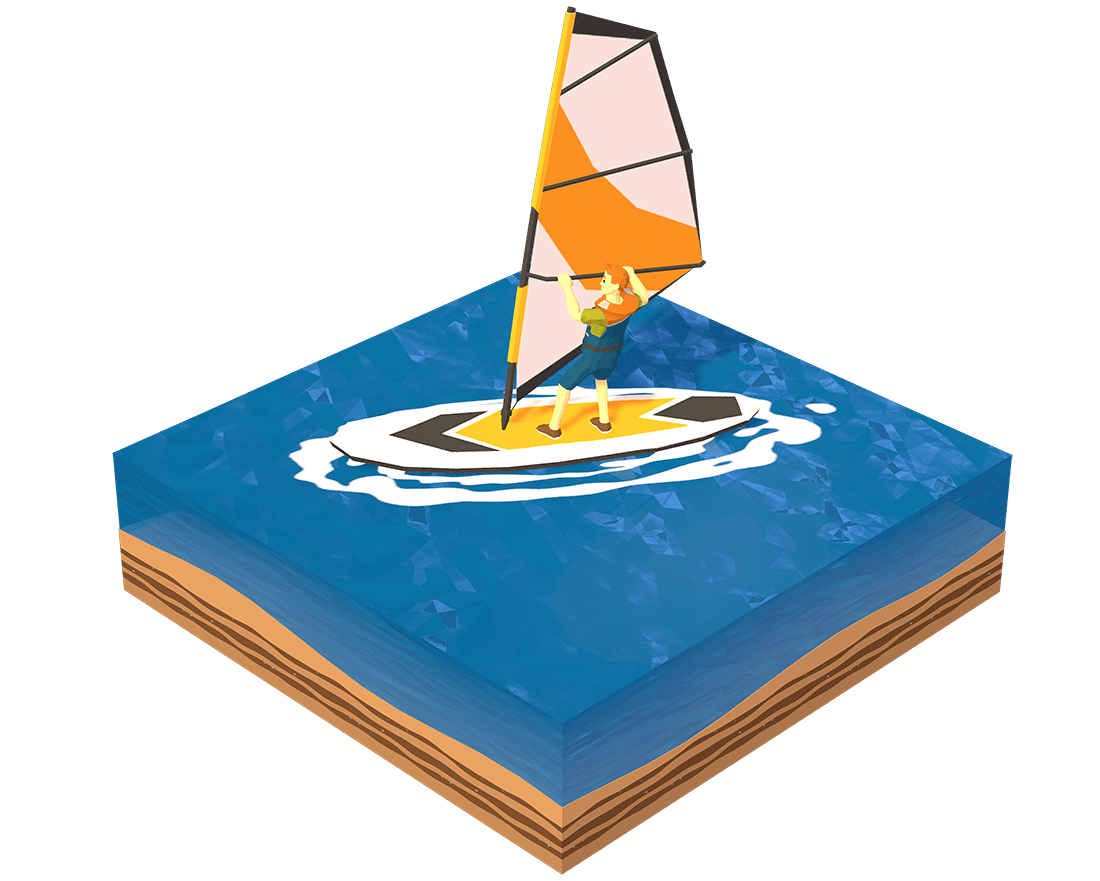Sailboards and Kiteboards

If the operator of a sailboard or kiteboard is wearing a lifejacket or PFD of appropriate size, only the following equipment is required on board:
If the paddleboat, watercycle or kayak is operated after sunset, before sunrise, or in periods of restricted visibility (fog, falling snow, etc.).
If the operator of a sailboard or kiteboard is not wearing a lifejacket or PFD of appropriate size, the following equipment is required on board:
One approved Personal Flotation Device of appropriate size for each person on board
Note: A personal flotation device or lifejacket kept on board a human-powered pleasure craft, operated in whitewater must be inherently buoyant.
One buoyant heaving line at least 15m (49’3”) long
Note: A reboarding device is only required if the vertical height that must be climbed to reboard the pleasure craft from the water is over 0.5 m (1’8”).
One bailer or manual bilge pump or bilge-pumping equipment
Note: A bailer or manual bilge pump is not required for a pleasure craft that will not hold enough water to make it capsize, or a pleasure craft that has watertight compartments that are sealed and not readily accessible.
One sound-signalling appliance or sound-signalling device that meets the applicable standards set out in the Collision Regulations
Navigation lights for human-powered pleasure craft that meet the requirements set out in the Collision Regulations
Note:
-
Navigation lights are only required if the pleasure craft is operated after sunset, before sunrise, or in periods of restricted visibility (fog, falling snow, etc.).
-
For a human-powered vessel, this requirement can be met with a watertight flashlight.
One magnetic compass
Note: A magnetic compass is not required if the pleasure craft is 8 m (26’3”) or less and is operated within sight of seamarks (navigation marks).
One radar reflector is required under certain conditions